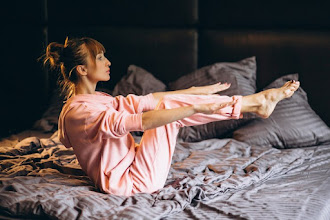Maximizing Your Evening Workout Routine for Better Sleep
Introduction:
When it comes to our overall health and wellness, the connection between exercise and sleep quality holds significant importance. Many individuals prioritize maintaining a regular exercise regimen, but the timing of these workouts can significantly influence our sleep patterns. This article aims to explore the effects of evening exercise on sleep quality, offering insights into whether exercising before bedtime is conducive to a restful night’s sleep.
Understanding Circadian Rhythms:
Before delving into the impact of evening exercise on sleep, it’s crucial to grasp the concept of circadian rhythms. These internal biological clocks regulate various bodily functions, including our sleep-wake cycle. Influenced by external factors like light and temperature, our circadian system determines the optimal timing for different activities throughout the day.
The Relationship Between Exercise and Sleep:
While regular physical activity yields numerous health benefits, including improved cardiovascular health and enhanced mood, its effects on sleep are multifaceted. While daytime exercise is generally associated with better sleep quality, the effects of evening workouts have sparked debates among researchers and health enthusiasts alike.
Benefits of Evening Exercise:
1. Temperature Regulation:
Engaging in physical activity raises body temperature, and the subsequent cooling-off period post-exercise may align with our natural circadian rhythm, promoting relaxation and readiness for sleep.
2. Stress Reduction:
Exercise serves as a potent stress reliever, aiding in clearing the mind and releasing tension, which can contribute to a more peaceful night's rest.
3. Flexibility and Convenience:
For individuals with busy schedules, evening workouts offer flexibility and convenience, making it easier to incorporate exercise into daily routines, even if it means exercising closer to bedtime.
Drawbacks of Evening Exercise:
1. Increased Heart Rate and Cortisol Levels:
Intense evening workouts can elevate heart rate and cortisol levels, potentially hindering the ability to wind down and fall asleep immediately after exercise.
2. Disruption of Circadian Rhythms:
Exercising too close to bedtime may disrupt our natural sleep-wake cycle, as the body interprets increased physical activity as a signal to stay awake, potentially delaying sleep onset.
3. Individual Variability:
Responses to evening exercise vary among individuals, influenced by factors such as fitness levels, personal preferences, and tolerance to late-night physical activity.
Tips for Incorporating Evening Exercise While Enhancing Sleep:
1. Optimal Timing:
Complete vigorous exercise several hours before bedtime to allow for the post-exercise drop in body temperature and cortisol levels. Consider gentler activities like yoga or stretching closer to bedtime.
2. Establish a Wind-Down Routine:
After evening exercise, establish a calming routine to signal to your body that it’s time to wind down. Activities such as reading, taking a warm bath, or practicing relaxation techniques can promote better sleep.
3. Listen to Your Body:
Pay attention to how your body responds to evening workouts. If late-night exercise consistently disrupts your sleep, consider adjusting the timing or opting for alternative physical activities.
Conclusion:
Achieving a healthy lifestyle involves understanding the intricate relationship between exercise and sleep. While daytime exercise is generally beneficial for sleep quality, the impact of evening workouts varies from person to person. By being mindful of individual responses, experimenting with different timings, and incorporating relaxation strategies, you can maximize the benefits of exercise without compromising sleep quality. Remember, prioritizing your well-being is a holistic journey that requires attention to various factors, and finding the right balance is key to optimizing your overall health and wellness.




Comments
Post a Comment